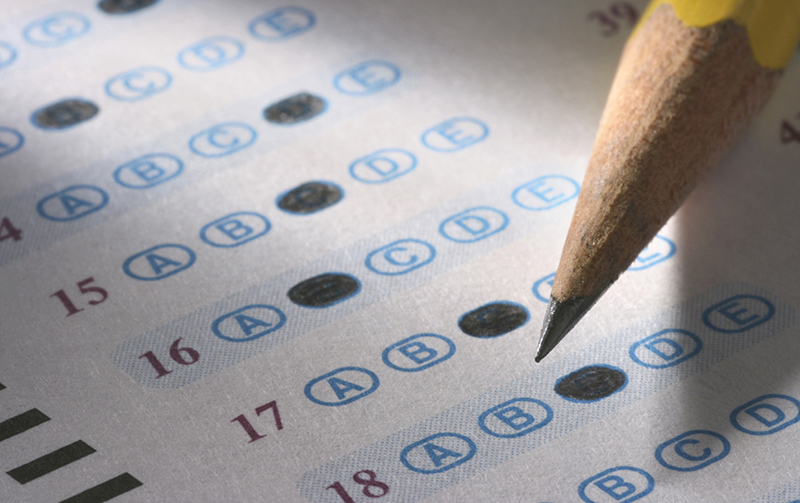The situational judgement test (SJT) has become a crucial part of selection and recruitment processes in medical schools, corporate assessments, and various competitive fields. While it may seem straightforward—judging how you would react in real-life scenarios—the nuances of these tests often lead candidates to make costly mistakes. If you’re preparing for one, it’s vital to understand where others slip up and how to avoid falling into the same traps.
In this detailed guide, we explore the top 5 mistakes candidates make in situational judgement tests, supported by actionable advice and insights to enhance your performance.
1. Misunderstanding the Objective of the Test
Many candidates walk into an SJT with the misconception that there is always a “correct” or “textbook” answer. Unlike traditional exams, SJT evaluations are about how you respond to professional scenarios—your judgement, empathy, decision-making, and prioritisation.
Common Pitfalls:
-
Treating the test like a knowledge-based exam.
-
Trying to guess what the examiner wants instead of providing a genuine, professionally sound response.
-
Applying personal emotions rather than professional reasoning.
How to Avoid It:
-
Understand that SJTs assess soft skills—communication, integrity, teamwork—not clinical or technical knowledge.
-
Always consider what’s in the best interest of the patient, team, or organisation.
-
Ask yourself: “What action demonstrates the most professional conduct?”
2. Failing to Prioritise Responses Properly
SJT questions often require ranking responses from most to least appropriate. This can trip up even the most prepared candidate. The issue lies not in identifying good responses but in determining which response is the most appropriate in context.
Common Pitfalls:
-
Ranking a passive or delayed action too high.
-
Confusing empathetic responses with effective ones.
-
Over-prioritising escalation when self-management would suffice.
How to Avoid It:
-
Learn to distinguish urgent actions from those that can wait.
-
Consider immediate consequences: patient safety, ethical standards, and institutional policy.
-
Use SJT practice questions regularly to refine your prioritisation judgement.
3. Ignoring Subtle Context Clues in the Scenario
Each scenario in an SJT contains subtle clues that hint at the best course of action. Overlooking these nuances is a major mistake. Candidates often skim through the scenario, missing crucial elements like tone, urgency, or the presence of authority figures.
Common Pitfalls:
-
Overlooking the role you’re playing in the scenario.
-
Not noting whether you’re a junior, senior, or equal in rank to others involved.
-
Failing to recognise emotional undertones that affect decision-making.
How to Avoid It:
-
Read the question thoroughly. Every word matters.
-
Recognise hierarchies, ethical dilemmas, and responsibility distribution.
-
Ask yourself what a trusted colleague or supervisor would expect you to do in your given role.
4. Overreacting or Underreacting to Scenarios
Balance is essential in SJTs. Some candidates overreact by escalating minor issues or involving senior staff prematurely, while others underreact by ignoring pressing concerns.
Common Pitfalls:
-
Reporting a peer for a minor mistake without discussing it first.
-
Failing to report serious concerns like bullying, safety violations, or discrimination.
-
Avoiding conflict even when a confrontation is necessary.
How to Avoid It:
-
Consider proportionality: Match your action to the severity of the issue.
-
Reflect ethical principles: Autonomy, beneficence, non-maleficence, and justice.
-
Use sjt test questions in mock settings to rehearse a balanced response.
5. Not Practising Enough with Authentic SJT Material
SJTs are not like conventional tests, and success doesn’t come from rote memorisation. A lack of exposure to realistic scenarios is one of the biggest reasons for underperformance. Practice is key, but only if it’s targeted and high-quality.
Common Pitfalls:
-
Using outdated or irrelevant materials.
-
Practising without reflecting on why an answer is right or wrong.
-
Failing to time yourself during practice sessions.
How to Avoid It:
-
Use scenario-based training from trusted platforms like Mediword that offer reliable SJT practice questions.
-
Review your responses and learn from your mistakes.
-
Simulate real test conditions to build your test-taking stamina and timing.
Bonus Tips to Improve Your SJT Performance
Stay Calm Under Pressure
Emotional responses can cloud judgement. Stay professional, even in tense scenarios. Your composure is part of what’s being evaluated.
Know the Core Values and Ethics
Familiarise yourself with the values expected in your profession—honesty, respect, accountability, and safety. Your answers should reflect these principles.
Avoid Bias
Always be inclusive. Your decisions should not show favouritism, discrimination, or judgement based on stereotypes.
Frequently Asked Questions
What is the best way to prepare for a situational judgement test?
Practice using realistic, timed sjt test questions and reflect on each answer. Learn to think like a professional and base decisions on ethical reasoning and organisational priorities.
How many types of responses are typically asked for?
There are usually multiple-choice options asking for:
-
The best and worst response.
-
Ranking all responses in order of effectiveness.
Can I fail a situational judgement test?
Yes, poor judgement can lead to a fail. While not all SJTs are pass/fail, your results can significantly impact your chances of selection.
Are these tests the same for all professions?
No. While the principles are similar, scenarios are tailored to the professional role—medical SJTs will differ from those for corporate or civil service roles.
Where can I find reliable SJT practice questions?
We recommend platforms such as Mediword that provide profession-specific, high-quality materials to improve your performance.
Final Thoughts
Avoiding these five common mistakes can significantly boost your situational judgement test performance. Approach each scenario calmly, professionally, and ethically. Practise regularly with sjt practice questions to sharpen your skills and prepare effectively.
If you want to succeed, don’t just focus on answering correctly—focus on thinking like the professional the test is designed to evaluate.





